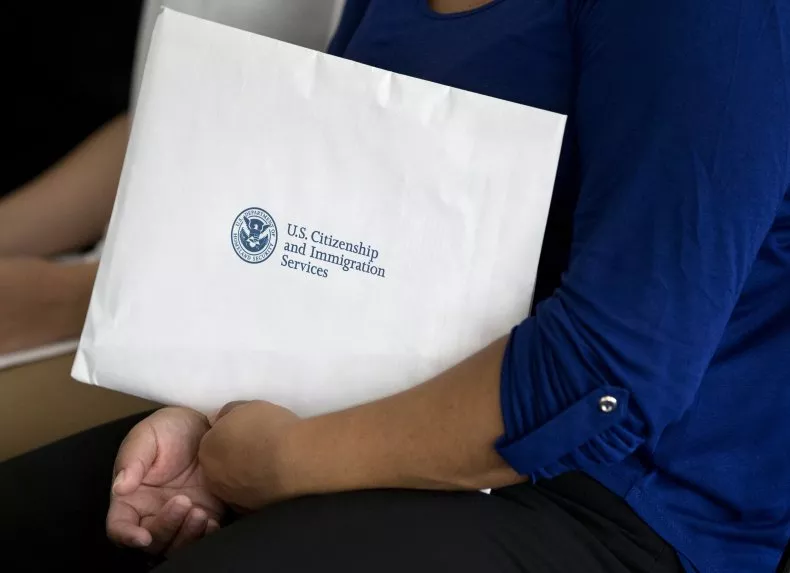US Citizenship and Immigration Services (USCIS) has released updated policy guidance tightening the evaluation process for family-based immigrant visa petitions, particularly those filed by married couples seeking green cards.
The revised guidance, published in the USCIS Policy Manual on August 1, is effective immediately and applies to both pending and newly submitted petitions. It comes as USCIS grapples with a backlog of 11.3 million immigration applications, reports Newsweek.
In its press release, USCIS stated: “Fraudulent, frivolous, or otherwise non-meritorious family-based immigrant visa petitions erode confidence in family-based pathways to lawful permanent resident (LPR) status and undermine family unity in the United States.”
The new policy clarifies that approval of a family-based petition does not automatically confer legal immigration status. USCIS also warned that a Notice to Appear in removal proceedings may be issued if a beneficiary is deemed removable under US immigration law.
USCIS said the updated policy aims to strengthen its ability to evaluate the legitimacy of marriage-based and other family-related petitions. It includes detailed guidance on eligibility criteria, documentation requirements, interview procedures, and how to handle cases involving multiple or related petitions. The policy also defines when approved petitions will be forwarded to the Department of State’s National Visa Center, especially in cases where the beneficiary initially sought to adjust status in the US but was later found ineligible.
One notable provision allows US citizens—particularly military personnel or those stationed abroad for government assignments—to file Form I-130 directly with the Department of State under certain conditions, including during large-scale disruptive events.
USCIS stated: “This guidance will improve USCIS’ capacity to vet qualifying marriages and family relationships to ensure they are genuine, verifiable, and compliant with all applicable laws. USCIS is prioritizing robust alien screening and vetting that protects Americans from potential national security threats.”
Morgan Bailey, a partner at Mayer Brown and former Department of Homeland Security official, told Newsweek: “The Trump administration believes that the primary mission of USCIS is to serve as a screening and vetting agency rather than as a benefits granting agency.”
The new policy takes effect immediately.


